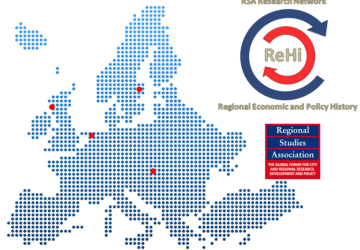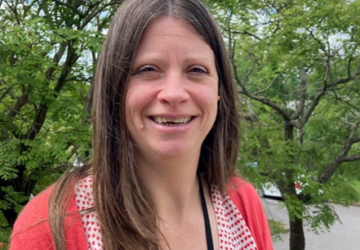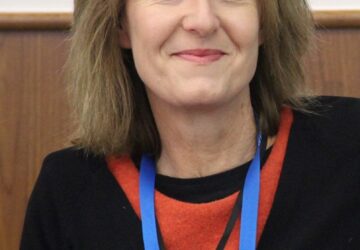
A decision was taken to establish the Regional Studies Association, and a Steering Committee was formed

A decision was taken to establish the Regional Studies Association, and a Steering Committee was formed


The International Centre for Regional Planning and Development (ICRPD) was formed

By 1997, the Association’s trajectory towards internationalisation was firmly established; the ERRN was disbanded in 1998 and its work was incorporated into the Association’s main activities. The Association also made concerted efforts to internationalise its Board; in April 2012, representation came from South Africa, Australia, Austria, England, Germany, the Netherlands, Scotland, Singapore, Sweden, the USA […]

In 2005, the Association reached its fortieth anniversary. The occasion was marked with a celebratory event at the House of Commons on 14th September, 2006.

At a Special General Meeting in December 2000, a resolution was passed to dissolve the unincorporated charity and reform as a charitable company. The new entity came into being on 1 January 2001 and the Association’s assets were transferred.

In the 1990s, editorship of the journal changed hands several times and heralded by a further change in the cover design, it moved to a new publisher – namely, Carfax, a small, specialist journal publisher. The number of issues increased to seven in 1992, eight in 1993, and nine issues in 1997. And to address […]

With opposition politicians canvassing for new policy ideas, the Association decided to take the initiative and reconvened its Inquiry in to the UK’s regional problems. Its findings were published in 1992 as Regional Development in the 1990s:

In December 1986, the Association appointed a youthful graduate, Sally Hardy (née Parkinson), to the role of Executive Secretary. From her arrival, Hardy’s impact was noticeable as she combined a civil-service style of management with a desire for the Association to become more ambitious and efficient.

After Peter Hall, the editorship of Regional Studies was passed on to John B. Goddard and, owing to printing and distribution delays, the journal moved to another publisher. Cambridge University Press began publishing Regional Studies in 1982 and the benefits were immediately apparent: it was published on time, with an improved appearance and a commitment […]

In early 1982, the Association convened a panel of experts to examine the changing regional problem. The resulting Inquiry into Regional Problems in the United Kingdom re-imagined what regional intervention should look like in the face of government antipathy, competing inner urban problems, and an economic recovery that would favour some parts of the country […]

At the close of the 1970s, the Association’s conference entitled ‘The Death of Regional Policy’ held in Glasgow seemed prophetic. Shortly afterwards, Margaret Thatcher’s Conservative administration won the 1979 general election and regional economic planning was challenged like never before as power was drawn to the centre.

As the Association adapted to this changing environment, it proclaimed a continued need for its work when, in 1973, Britain entered the European Economic Community (EEC). However, with the return to power of Wilson’s Labour party in 1974, a range of institutional innovations, such as the National Enterprise Board, were introduced as the national economy […]

One of the first goals of the Steering Committee was to establish a quality, peer reviewed publication to disseminate regional research. Following successful negotiations with Pergamon Press, Regional Studies was launched in May 1967 under the editorship of Peter Hall – a major landmark in the Association’s development as a learned society.

The British Group of ICRPD was dissolved, and the inaugural meeting of the Association was held on 9th April. The first conference, entitled Regional Planning in Britain, followed on 9th October, 1965 succeeded in bringing together a mix of academics from varied disciplines along with those from policy and practice.

Organisers Marijn Molema, Fryske Akademy, Royal Dutch Academy of Sciences, the Netherlands Arno van der Zwet, University of the West of Scotland, UK Martin Åberg, Centre for Regional Studies, University of Karlstad Sara Svensson, Center for Policy Studies, Central European University The past plays a crucial role in understanding, developing and implementing regional economic development […]

We are delighted to have been shortlisted as a finalist in the Association Excellence Awards 2019 in Best Association Team category. We will look forward to attending the finals in October, where fingers crossed, we might win! Details of all the finalists can be found on the Association Excellence Awards web page https://associationexcellenceawards.co.uk/shortlist-2019/

On 25th June we, along with Lisa de Propris (University of Birmingham) and representatives from Taylor and Francis, presented an ‘Evidence Pod’ at Westminster, as part of the Evidence Week organised by Sense about Science. The aim of the event was to brief members of Parliament and the House of Lords about important policy issues. […]

Organisers: Martin Sokol, Trinity College Dublin, Ireland Zoltán Gál, Hungarian Academy of Sciences, Hungary Dariusz Wójcik, University of Oxford, UK David Bassens, Vrije Universiteit Brussel, Belgium The RSA Research Network on Financial Geographies has operated with RSA support under the auspices of the Global Network on Financial Geography (FinGeo), launched in Oxford in 2015 (building on a […]

The Chair of the RSA East of England Branch, Pete Tyler is Professor, Department of Land Economy, University of Cambridge and Director of Studies in Land Economy at St. Catharine’s College Peter Tyler is a Professor in Urban and Regional Economics. He has been a Project Director for over seventy major research projects for Government, […]
The CEE Division comprised of Albania, Bulgaria, Belarus, Bosnia and Herzegovina, Croatia, the Czech Republic, Estonia, Hungary, Kosovo, Latvia, Lithuania, Macedonia, Montenegro, Moldova, Poland, Romania, the Slovak Republic, Serbia, Slovenia, and Ukraine. However, the CEE Division is inclusive and we also welcome members from other countries not listed here. The CEE Division is a limited […]

Lesa has worked at the Regional Studies Association since February 2012; arriving with over 20 years of experience in events and conferences management for a variety of organisations in London and the South East, covering disciplines such as fashion and education as well as those concerned with important governmental issues. Lesa made an immediate impact […]

Samantha completed a BA (Hons) in Development Studies at the University of Sussex. She has previously worked in the charity sector for 8 years and in higher education for 10 years. She has extensive experience as a project administrator for charities working with schools across Sussex.

Sally Hardy is the outgoing Chief Executive of the Regional Studies Association. She began her career at the Economic and Social Research Council where she worked as a Scientific Officer in the Industry and Employment Committee dispensing funding to UK based social science academics. Sally moved to the Regional Studies Association where she has been […]